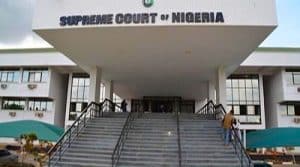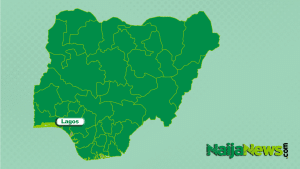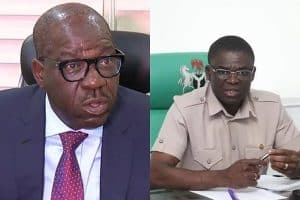The Supreme Court has scheduled a hearing for October 22 regarding a suit filed by 16 state governments contesting the constitutionality of the laws that established the Economic and Financial Crimes Commission (EFCC) and two other agencies.
A seven-member panel of justices, led by Justice Uwani Abba-Aji, set the date after granting leave for the states to be joined as co-plaintiffs and for the consolidation of the case, initially filed by the Kogi State Government through its Attorney General.
The states participating in the suit, marked SC/CV/178/2023, include Ondo, Edo, Oyo, Ogun, Nassarawa, Kebbi, Katsina, Sokoto, Jigawa, Enugu, Benue, Anambra, Plateau, Cross-River, and Niger.
The states contend that the constitution is the supreme law of Nigeria, asserting that any law inconsistent with it is void.
They cite a precedent set by the Supreme Court in the case of Joseph Nwobike vs. Federal Republic of Nigeria, which established that the UN Convention against Corruption was incorporated into the EFCC Establishment Act without adhering to the necessary constitutional provisions.
The plaintiffs argue that the enactment of the EFCC Act in 2004 did not comply with Section 12 of the 1999 Constitution, as amended.
This section requires that a majority of the state Houses of Assembly must consent to bringing any convention into Nigerian law.
The plaintiffs assert that such consent was not obtained, rendering the law, as enacted, inapplicable to states that did not approve it.
During Tuesday’s proceedings, lawyers representing the states presented their submissions, with the majority seeking to join as co-plaintiffs.
Two states requested the court’s approval for case consolidation. Kogi’s AG counsel, Abdulwahab Mohammed, informed the court of the interests expressed by various states regarding their participation.
Justice Abba-Aji granted the requests for joining co-plaintiffs and for consolidation, thereby simplifying the court’s task moving forward. The matter has now been adjourned until October 22 for further hearings.
The Kogi State Attorney General, as the sole plaintiff in the suit, has raised six critical questions for determination and is seeking nine specific reliefs.
Among these requests is a declaration that the federal government, through the Nigerian Financial Intelligence Unit (NFIU), lacks the authority to issue directives or guidelines concerning the administration and management of Kogi’s funds.
They also seek a declaration that the EFCC, NFIU, or any federal agency cannot investigate or take any action regarding offenses related to the management of Kogi’s financial resources.
The post Kogi, 15 Other States Want Supreme Court To Declare EFCC Illegal, Curb Its Powers appeared first on Naija News.







